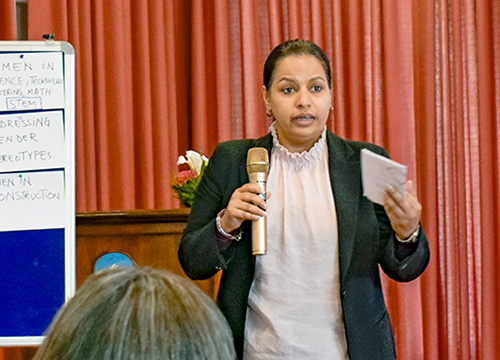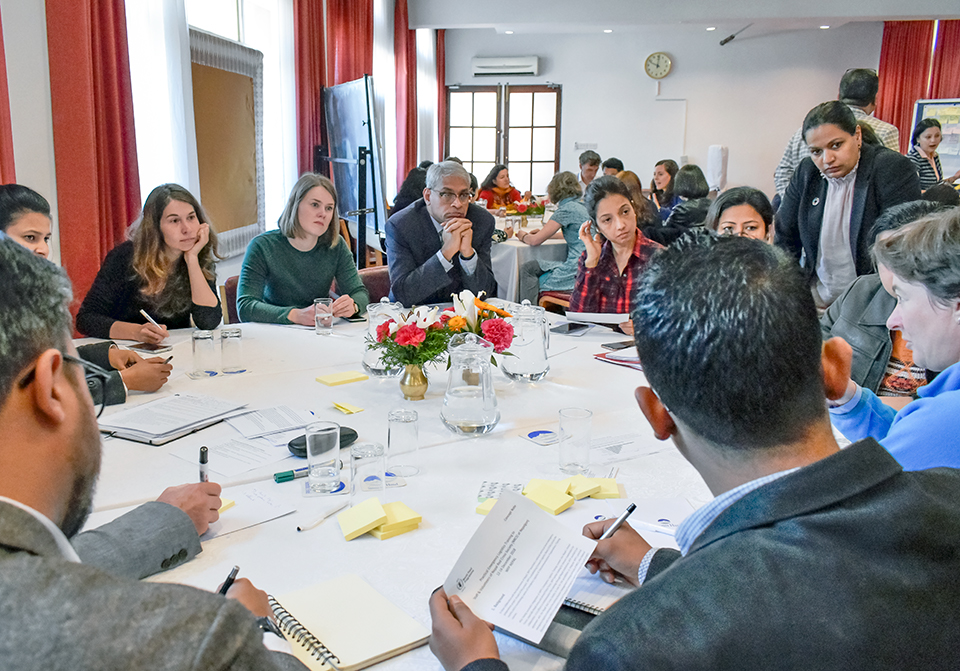Women in Construction
Remarks by Gitanjali Singh, UN Women Nepal Deputy Representative at a Women in Construction discussion event that was held with UN Agencies and partners on 15 March.Date:

Good morning and Namaste. As we continue to celebrate International Women’s Day through the month of March, UN Women and UNOPS with ILO and WFP are very pleased to organise this first dialogue in a series of discussions on “Women in construction”.
The achievement of the SDGs, and particularly gender equality and women’s empowerment, requires transformative shifts, integrated approaches, and new solutions. Based on current projections, the existing interventions will not be enough to ensure an end to discrimination and achievement of gender equality by 2030.
If we want to achieve sustainable development, fifty percent of the population cannot remain on the margins. We need to level the playing field. Women must be integrated into the formal workforce. We need to make a shift in women’s economic empowerment that is too often focused on vocational training in traditionally gendered occupations, to non-traditional sectors like construction. Many of us have witnessed the amazing work by women masons post the devastating earthquakes.
Earlier this week, UN Nepal showcased and celebrated women role models who are shattering the glass ceiling in non-traditional fields as pilots, as mechanics, as engineers, as adventure sport instructors. Young women and men in Nepal need to see these changers makers, so that they can be inspired to try new opportunities. In shattering the glass ceiling, these women are breaking stereotypes and building a new understanding of “women’s work”.
We will not achieve this paradigm shift, if we do not address gender discriminatory norms and harmful practices.
- The skewed gender division of labour must change
- Domestic care work scenarios must change to be more equitable
- Workplaces must change to be free from discrimination and wages must change to be equal
- Public transport and others public services must change to be free from harassment and abuse
- Young people must change gender discriminatory inter-generational socialization patterns and promote equality and inclusion
The ongoing Commission on the Status of Women is for the first time deliberating on social protection systems, public services and infrastructure, all fundamental to ensuring women’s mobility, access to economic opportunities and building their resilience to shocks.

As we often say at UN Women, investing in women’s economic empowerment in non-traditional sectors is both the right thing to do and the smart thing to do. Women and girls are ready to contribute to making real change, and help shape the policies, services and infrastructure that impact their lives – let’s collectively enable these opportunities for them.
Thank you.